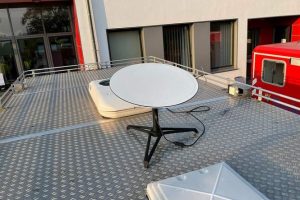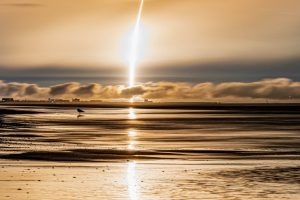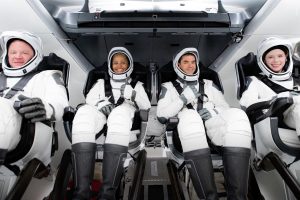- 🚀 SpaceX launched a Falcon 9 rocket to rescue two astronauts stranded on the ISS.
- 👨🚀 Astronauts Suni Williams and Butch Wilmore were stranded due to Boeing Starliner issues.
- 🛠️ The Starliner had malfunctioning thrusters that NASA deemed too risky to attempt a return.
- 👥 SpaceX’s Crew-9 mission was chosen to return the astronauts, sidelining Boeing.
- 🤯 Boeing employees reportedly felt humiliated by SpaceX’s intervention.
- 📅 Crew-9 will remain on the ISS conducting experiments until 2025.
- 🔬 The mission includes experiments on blood clotting, plant moisture, and vision changes.
In a dramatic turn of events, SpaceX’s timely intervention has captured the attention of space enthusiasts worldwide. Two astronauts, Suni Williams and Butch Wilmore, found themselves stranded on the International Space Station (ISS) due to complications with the Boeing Starliner spacecraft. This blog post delves into the intricacies of this space rescue mission, the challenges faced by Boeing, and the scientific research embarked upon by Crew-9.
The Unexpected Rescue Mission
Space travel, while laden with promise, is not without its perils. The recent development involving a SpaceX Falcon 9 mission highlights this truth. Initially, Williams and Wilmore were sent aboard Boeing’s Starliner for what was supposed to be a short space mission. However, due to multiple technical failures, including malfunctioning thrusters, NASA deemed the spacecraft unsafe for their return journey.
Why Were Astronauts Stranded on the ISS?
The Boeing Starliner was anticipated to perform flawlessly as part of NASA’s Commercial Crew Program, but multiple technical setbacks marred its operation. The critical failure of its thrusters posed a significant risk, leading NASA to make the cautious decision of not trusting it for the astronauts’ return—a prudent choice given the stakes involved in human spaceflight.
SpaceX’s Crucial Role
Subsequently, SpaceX was entrusted with the critical task of bringing Williams and Wilmore back to Earth. The Crew-9 mission of SpaceX, originally planned for its own significant research agenda aboard the ISS, had to accommodate the transport needs of the stranded astronauts, effectively overshadowing Boeing’s intended role.
Boeing’s Response: A Humbling Setback
Boeing’s predicament not only involved technical scrutiny but also an emotional and psychological milieu. Reports suggest a palpable sense of deflation and humiliation among Boeing employees, engendered by SpaceX’s successful intercession. This incident has provided a breather for criticism about intra-industry rivalries in the space sector, and perhaps foreshadows a shift in dynamics favoring SpaceX’s agile approach within NASA collaborations.
Crew-9 Mission: Beyond the Rescue
Despite the unexpected complications posed by the astronauts’ rescue, the Crew-9 mission persists in its dedicated pursuit of scientific advancement. The crew remains aboard the ISS with a mission duration extending into early 2025.
Scientific Endeavors: Pioneering Research in Space
The Crew-9 mission is tasked with a multitude of experiments that not only benefit our understanding of living in space but also have terrestrial applications. Key experiments include:
- Blood Clotting in Space: Investigating how microgravity affects blood coagulation processes—a vital focus for astronaut health during extended missions.
- Moisture on Plants Grown in Space: Aiding efforts to cultivate plants in space, crucial for long-term habitation and sustainability in extraterrestrial environments.
- Vision Changes in Astronauts: Understanding spaceflight-induced ocular changes to safeguard astronaut sight and cognitive function.
Conclusions and Perspectives
The SpaceX Crew-9 mission not only highlights the company’s reliability but also reaffirms NASA’s adaptability and commitment to safe space exploration. Meanwhile, Boeing faces challenges that, if addressed robustly, could spur innovations reminiscent of the space race spirit.
Space exploration continues to fascinate and inspire, providing endless learning opportunities and pushing the boundaries of human potential. As SpaceX and NASA head towards the future, the lessons from this chapter will undoubtedly guide and shape their endeavors.





